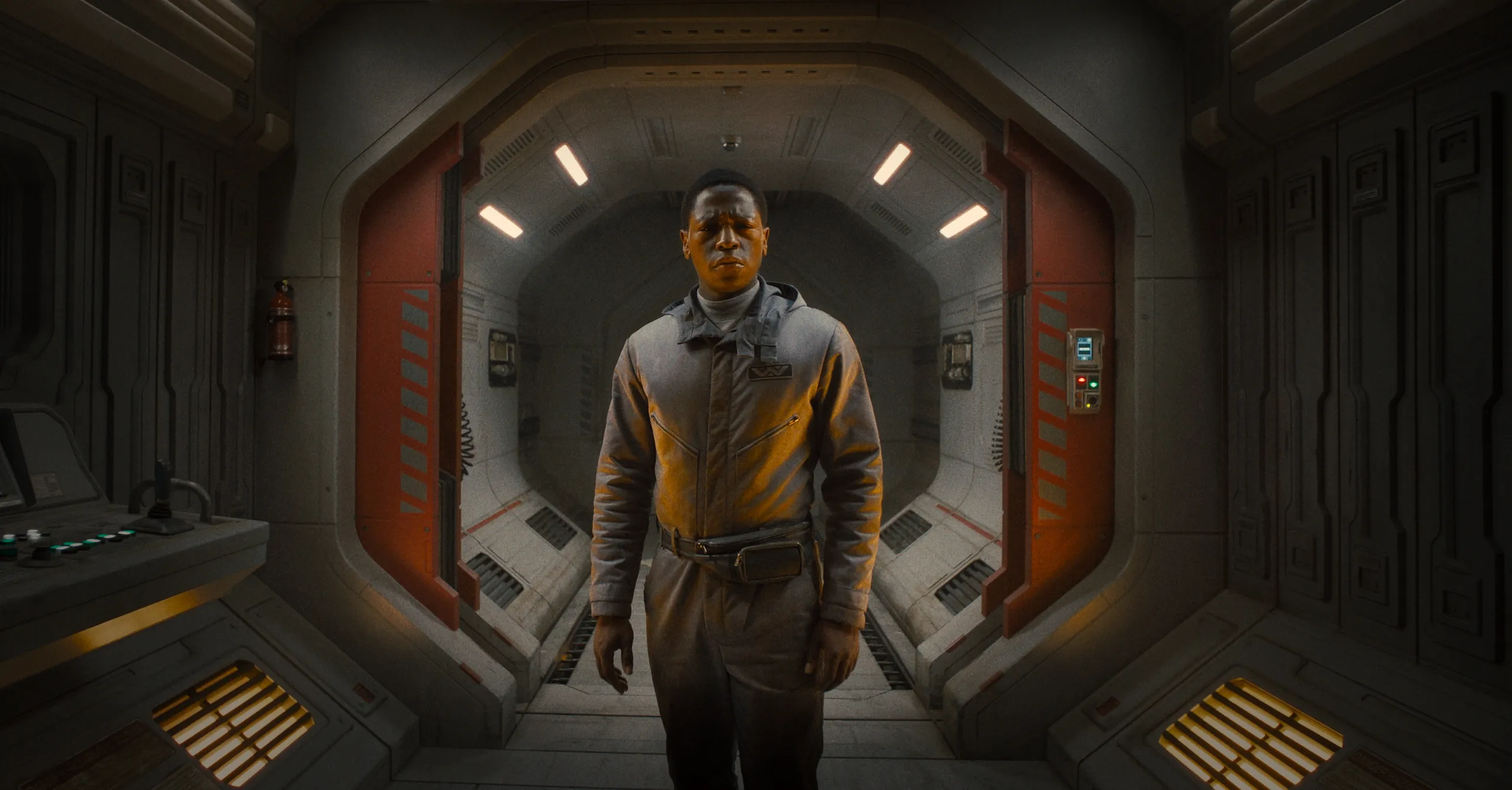In 1979, a group of officials, driven by a desire to fulfill their duties, suddenly awakened to find themselves confronting an entity that had overtaken their ship. Of the seven crew members, only Ellen Ripley, the one no one chose to listen to, managed to survive. By the film’s end, Sigourney Weaver had become a superstar. However, the Alien that Ripley managed to escape never truly left her; it pursued her in three subsequent films in 1986, 1992, and 1997, even attempting to transform her into its queen. Alien, written by Dan O’Bannon and Ronald Shusett and born from the wild imaginings of H.R. Giger, was transformed into a legend under the direction of Ridley Scott. At a time when slasher horrors dominated the screens, this film unleashed a creature far more terrifying than any human could fathom, and its impact endures even today. Yet, as much of a classic as the 1979 Alien is, I believe it is Ridley Scott’s 2012 film Prometheus that truly sets the Alien franchise apart from a mere survival story. By adding depth to the universe and the Xenomorphs, the film has ensured that today, Alien: Romulus stands out as an exceptional and brilliantly crafted addition, shining brightly in a series that seemed to have reached its energy after the third and fourth films.
Let’s briefly touch on the plot… Rain (Cailee Spaeny) and her android brother Andy (David Jonsson), who works in the Weyland-Yutani mines on a sunless colony, dream of escaping to Yvaga to live freely under the sun, but the company has no intention of letting them go. Just as hope begins to fade, their friend Tyler (Archie Renaux) comes up with a wild idea. They plan to board an abandoned ship drifting aimlessly in orbit, steal the cryopods, and make an unauthorized journey to Yvaga. Although it initially seems like a reasonable plan, the ship they secretly infiltrate harbors a terrifying danger far beyond their worst nightmares.

Fede Alvarez, who burst into our lives with Evil Dead in 2013, is among the directors who may make few films but make each one count. Returning to the Alien universe after Don’t Breathe and The Girl in the Spider’s Web, he once again captivates as he always does. Alvarez’s mastery in creating tension and his skillful use of eye-candy camera work is particularly commendable. However, the director’s most distinctive trait is his addition of a fourth act to the classic three-act film structure, creating a new climax after the finale. Just when it seems the main villain has been defeated and the hero is about to find peace, a fresh conflict emerges from the depths, injecting new excitement into the story. In Alien: Romulus, this fourth act introduces the most original creature of the franchise to date, serving as an extension of Prometheus.
Alien: Romulus rejuvenates the original film’s theme, adapting it for 2024. Just as a group of officials in 1979 found themselves face-to-face with a deadly creature, in Romulus, six young individuals find themselves trapped in a deathtrap. Films where the characters are unaware of the hell they are about to encounter, but the audience is fully aware, are always compelling in terms of storytelling. Romulus also follows the path set by Prometheus. It adds existential musings to the classic cat-and-mouse theme of Alien and turns this into a tension-filled narrative, particularly through the character of Rook (Ian Holm). Since the film takes place in the universe established after Alien: Covenant, I can say this: While Romulus may be a classic survival story, the foundation upon which it is built makes it the most striking narrative in the series since Prometheus. Especially with its provocative assertion that “we don’t have time to wait for evolution anymore,” the film succeeds in captivating those, like me, who enjoy tension-filled explorations of creationism.
Romulus is one of the best films to experience on an IMAX screen. It’s packed with scenes that will have viewers glued to their seats. The scene where the characters flee from the Facehuggers, Rook’s recounting of the events on the ship, the trio’s tense attempt to silently slip past the Facehuggers, the final showdown, and, of course, the most intense moment of the film where Rain and Andy navigate through the acid—all these scenes vividly remind you that you’re watching a true Hollywood film. However, the beauty of the film lies in how it achieves this while striving to maintain a sense of realism. Apart from the slightly artificial look of the scene where Andy jumps onto the Xenomorph in the elevator shaft, the film is a masterpiece of craftsmanship in every moment; not just one of the best films of the year, but one of the finest in recent years. I must also mention how impressed I am with the film’s use of the Xenomorphs. Romulus brings back the silver teeth we saw in Resurrection and, with the advancement of technology, has better mastered the dynamics of the creature. The practical effects enhanced by CGI are one of the main reasons the film succeeds in maintaining this realism.

Yet, despite all its merits, the one element that truly elevates the film is Cailee Spaeny. Just as I mentioned in Civil War, despite her petite stature, Cailee possesses a remarkably mature and powerful acting presence. Her appearance and acting style are starkly contrasting. While she may not be as tall and charismatic as Sigourney Weaver, she still manages to captivate through her performance. In fact, in many scenes, she exudes the confidence of a Hollywood star, and I must give her due credit for that. Cailee is a superb actress with an energy potent enough to hold audiences’ attention in countless theaters. I’m eager to continue following her career. However, the film’s brilliance lies in the fact that Cailee is not alone in her standout performance. The film’s other star, David Jonsson, also kick-starts his career with Alien: Romulus. Delivering one of the best portrayals of an android in the series, Jonsson presents a strong character, especially in scenes where lovely Andy is absent. Björn (Spike Fearn), who causes the demise of everyone in the film, and Kay (Spike Fearn), who delivers one of the best screams in years, both give exceptional performances, becoming integral pieces of an already magnificent film.
In summary… Alien: Romulus, setting aside the original, is the best film in the series since Prometheus. With Fede Alvarez’s brilliant direction, the career-defining performances of its actors, and a deeply layered narrative built on the foundation of Prometheus, this film stands as one of the most impactful of 2024. A tension-filled journey adorned with wild scenes that strive to maintain realism, Alien: Romulus compelled me to watch it twice. There are very few films I feel the need to see two or three times. As someone who watched Dune 2 three times in theaters this year, I can confidently say that Alien: Romulus belongs in that same category.

Cast & Crew
director: Fede Alvarez
writers: Fede Alvarez, Rodo Sayagues, Dan O’Bannon (based on characters created by), Ronald Shusett (based on characters created by)
starring: Cailee Spaeny, David Jonsson, Archie Renaux, Isabela Merced, Spike Fearn, Aileen Wu
USA | 2024 | 119 MINUTES |
